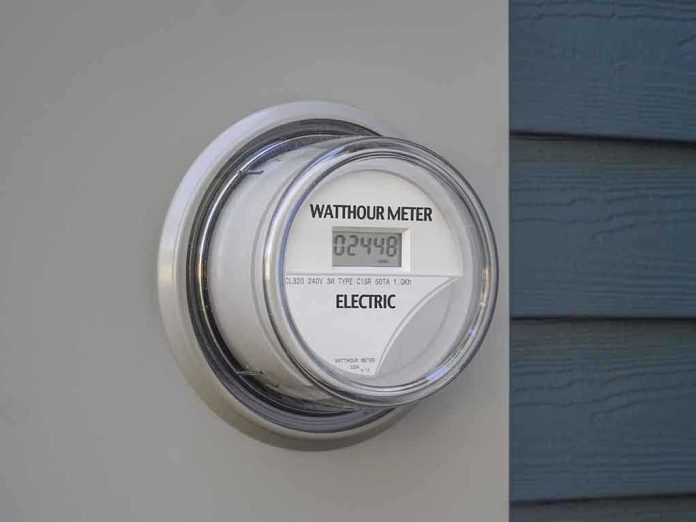
Is your smart meter spying on you? Sacramento residents have reason to be concerned.
At a Glance
- Sacramento uses smart electric meters to monitor residents’ power consumption.
- Authorities link high power usage to illegal cannabis cultivation.
- Privacy advocates argue this practice violates constitutional protections.
- Legal challenges question the use of utility data as evidence without a warrant.
Sacramento’s Surveillance Tactics
Sacramento, once a peaceful city where privacy was respected, now finds itself in the midst of a controversy surrounding smart meters. These devices, initially hailed for their efficiency and accuracy, have become tools for law enforcement to monitor residents’ power consumption. Authorities claim high electricity usage can indicate illegal cannabis cultivation, a practice that began when growers moved operations indoors to evade detection. This scrutiny, however, has not gone unchallenged, as privacy advocates and innocent residents alike voice their concerns.
High-profile cases in North America and Europe have seen police obtaining utility records—sometimes without warrants—to identify suspected grow operations. While these efforts aim to curb illegal activities, they raise significant privacy issues. Innocent individuals, such as avid hobbyists or those using electric heating, have found themselves under suspicion, highlighting the unreliability and potential for abuse of this investigative method.
Key Players and Their Roles
The power dynamics in this scenario are complex. Law enforcement agencies rely heavily on utility companies to provide them with data, sometimes under legal compulsion. This collaboration has sparked debates on the ethical implications of such surveillance. On the other side, privacy advocates and civil liberties groups argue that this practice is an overreach, calling for stronger data protection laws to prevent unwarranted intrusions into citizens’ lives.
Legal cannabis cultivators face their own set of challenges. They are required to comply with energy reporting and efficiency standards, which add to their operational costs. Despite adhering to regulations, they remain under scrutiny, illustrating a broader issue of regulatory overreach and inefficiency. Meanwhile, illegal growers continue to innovate, employing energy-masking techniques and off-grid solutions to avoid detection.
Legal and Ethical Implications
The legality of using power consumption data as evidence without a warrant is hotly contested. In some jurisdictions, courts have ruled in favor of privacy, stating that utility data is protected and requires a warrant for police access. However, these decisions vary, creating a patchwork of legal standards that only adds to the confusion and frustration of those affected.
As debates rage on, regulators and legislators are caught in the middle. They are tasked with setting policies that balance enforcement with privacy concerns. While some advocate for stricter controls and clearer standards, others see the monitoring of power consumption as a necessary tool in the fight against illegal activities. This tension underscores a broader societal conflict between security and freedom.
Moving Forward: The Path to Reform
The ongoing controversy in Sacramento has far-reaching implications. In the short term, there is a risk of wrongful suspicion and erosion of trust in utilities and law enforcement. Long-term, the potential for legal reforms restricting police access to utility data without warrants looms large. Such changes could lead to the normalization of energy reporting in legal cannabis markets, with a focus on sustainability and transparency.
Economically, compliance costs for legal cultivators could rise, while wrongful investigations might lead to financial and reputational damage for innocent parties. Socially, the debate over privacy and surveillance is likely to intensify, potentially leading to political shifts as citizens demand greater accountability and protection of their rights.













